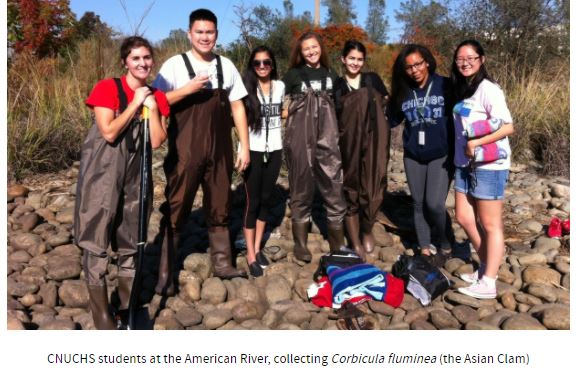Research
What does it mean to think like a scientist? For scholars at CHS, it means learning by doing to create real-world scholarship.
That is, research involves hands-on learning as much as textbooks and academic theory. Rather than passively studying what others have done, our students add to the existing body of knowledge through original creative and intellectual contributions.
CHS research also means working alongside innovative faculty to create new knowledge while building relationships with peers and the industry that will last long after graduation. The benefits of active research are many:
- Creating new knowledge through application and deeper understanding
- Independence and collaboration skills
- Career field exploration
- Scientific process explored with direct faculty mentorship
- Innovation-oriented scholarship
- Learning to think critically: “How do you know that?”
“Research” at CHS also spans disciplines so students prepare for their future roles as society’s contributors and leader with sharp presentation skills so that diverse audiences can understand complex issues.
Research is embedded in teaching and learning at CHS, so much so that several courses focus on scholarly projects.
 The Freshmen Research Experience at CNUCHS is part of the core curriculum. All students enrolled in freshmen Biology (BIOL110 and BIOL120) and Chemistry (CHEM110 and CHEM120) participate in original research projects during their entire first year of course work! This project, called the Interdisciplinary Science Learning and Novel Discovery (ISLaND) project, is a cross disciplinary innovation where student teams research the relationship between organismal health and environmental variables within a local ecosystem. At the culmination of the first year experience, students present their findings at the CNUCHS Student Research Day symposium event in either poster or oral format.
The Freshmen Research Experience at CNUCHS is part of the core curriculum. All students enrolled in freshmen Biology (BIOL110 and BIOL120) and Chemistry (CHEM110 and CHEM120) participate in original research projects during their entire first year of course work! This project, called the Interdisciplinary Science Learning and Novel Discovery (ISLaND) project, is a cross disciplinary innovation where student teams research the relationship between organismal health and environmental variables within a local ecosystem. At the culmination of the first year experience, students present their findings at the CNUCHS Student Research Day symposium event in either poster or oral format.
Most students also have the opportunity to enroll in the capstone research experience in the COLL310 and COLL320 series. These courses prepare students for independent research projects focused around expert faculty discipline interests. Students can choose from various focus topics including: neurodegeneration, DNA repair, human locomotion/gate, chemical modeling, and much more!
COLL 310, Scholarly Project/Research Methods, is a three-unit class focusing on the language, ethics, approaches, and challenges of the research processes. This is a deep-dive into exemplary research processes, with students critically reviewing relevant literature and developing a research question that may lead into COLL320.
COLL 320, Scholarly Project II, is another three-unit class but is structured as an independent research experience. Students attend a weekly seminar and chose from several options, including:
- Apprenticeship with a faculty research mentor, or
- CURE (Course-Based Undergraduate Research Experience) with themes, topics, and techniques varying by semester and faculty disciplines